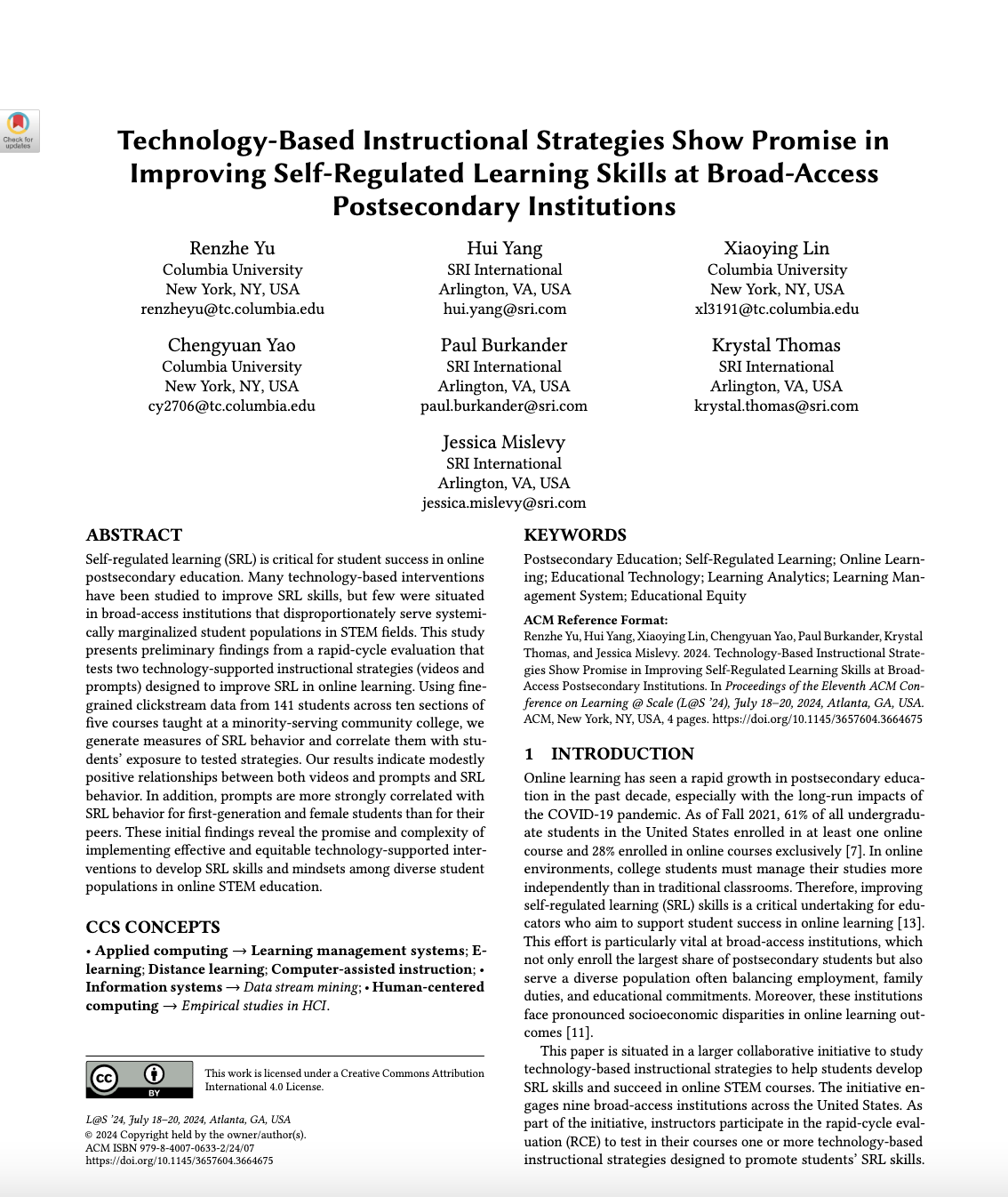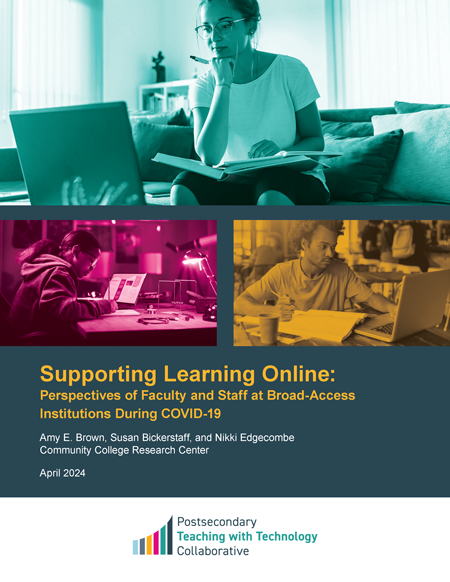Tony Perez is a professor in the Department of STEM Education and Professional Studies at Old Dominion University in Virginia and director of the university’s Motivation, Identity, and Learning Lab (MilLab). In his work, Perez focuses on how STEM instructors can support adaptive, positive forms of motivation by shifting away from a competitive, performance-focused classroom environment to one that provides various social supports and underscores the personal value and relevance of STEM courses.
In online courses, students are expected to take more ownership of planning their learning approaches and study methods, organizing their time, seeking help, and following through on coursework. In online STEM courses, these expectations are compounded by disciplinary cultures that have traditionally emphasized meritocracy and competitiveness.
In this webinar, researchers from the Postsecondary Teaching with Technology Collaborative will share insights from a formative study of technology-enabled instructional strategies designed to support students’ self-directed learning in online/hybrid STEM courses. The strategies, which include prompts to support planning and goal setting, informational videos with reflection questions, and structured opportunities to engage with peers, have been implemented by instructors at four broad-access colleges and universities across the U.S.
Before joining the Postsecondary Teaching with Technology Collaborative as a fellow, my perspective on education was primarily that of a student: absorbing information without deeply considering the intricacies of teaching. However, this fellowship has been transformative. It has broadened my understanding of the myriad factors that shape effective learning experiences, including teaching methodologies, curriculum design, and peer interactions.
Self-regulated learning (SRL) is critical for student success in online postsecondary education. Many technology-based interventions have been studied to improve SRL skills, but few were situated in broad-access institutions that disproportionately serve systemically marginalized student populations in STEM fields.
With the huge growth in online courses since the start of the COVID-19 pandemic, faculty are increasingly aware that they need to adapt their teaching to the new environment of online instruction. But they may not know how to adapt and, in particular, how to support students’ skills in managing their own learning in online courses.
This Postsecondary Teaching with Technology Collaborative brief discusses some of the challenges with online teaching reported by STEM instructors, describes a self-directed learning (SDL) framework to address these challenges, and highlights support strategies that can be integrated into teaching practices.
Don’t miss our session: Facilitating Positive Student Help-Seeking Experiences in Online Courses. Monday, March 18, 2024, 11:30 am – 12:30 pm PT. Community college instructors will learn about the reasons students avoid asking for help, particularly in STEM courses. Research has linked such avoidance to students’ experiences of discrimination and marginalization, but studies show that students who seek help have better outcomes and experiences.
Check out our session A framework for self-directed learning strategies to support student success in online learning. Friday, April 12, 2:30-3:15pm MT. Researchers will present an evolving framework for understanding the motivational mindsets, metacognitive skills, and applied learning strategies that students need to develop in order to be successful in online courses. We will share emerging strategies implemented by institutional partners in online and blended classrooms to support development of skills highlighted in the framework (this portion of the presentation will include specific practices from an institutional partner).







